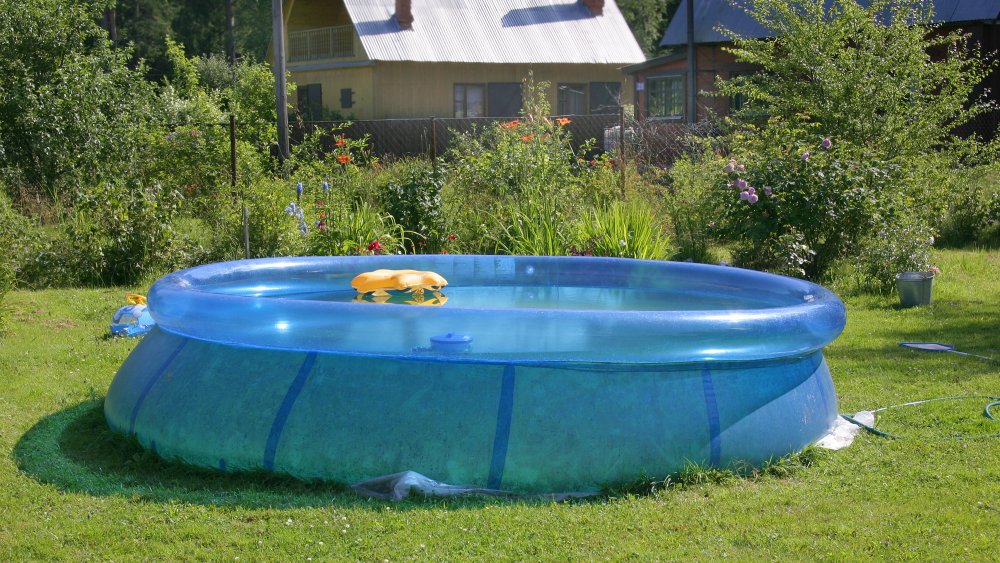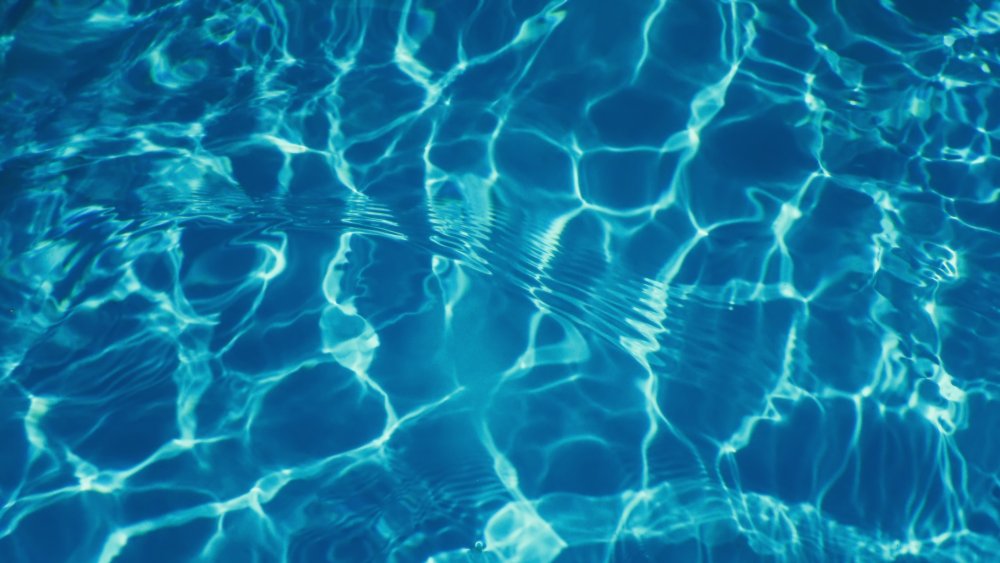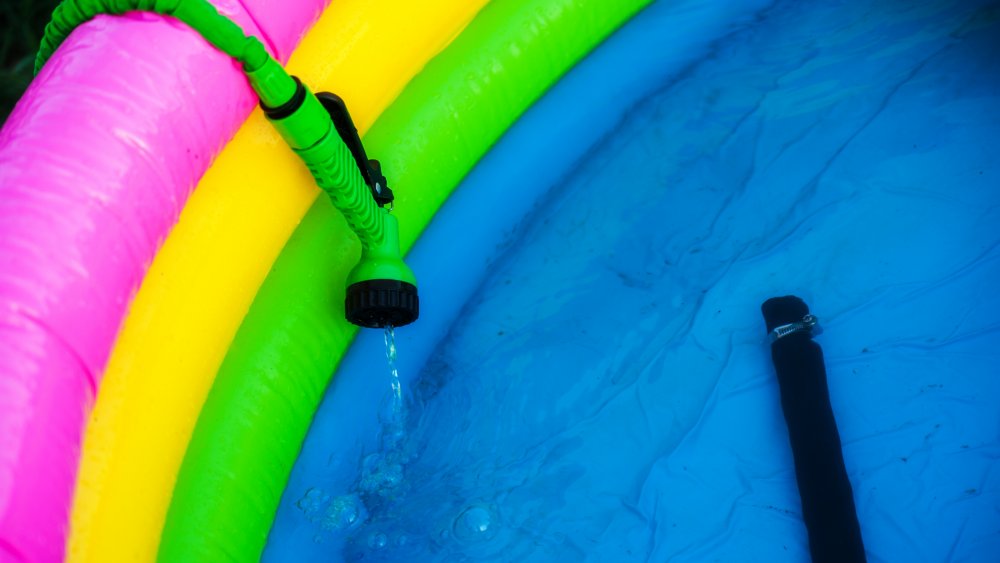Read This Before You Buy An Inflatable Pool This Summer
It's summer. It's hot. You/your partner want a space outside the shower or tub where you can splash around in — and you want to keep the kids busy all summer. We're sure you really don't need a bunch of reasons to invest in a pool, but there are factors you might want to consider before buying an inflatable pool just the same.
Before you even start looking, you'll need to consider the amount of room you have to set it up. Urban living spaces won't have much room to maneuver and as a result, you'll probably not be able to pull off anything larger than a small paddling pool for children or pets. But if you do have a backyard, you'll want to consider a pool that doesn't take up so much room that it overwhelms the entire area. On average, an inflatable pool can be anywhere from a few inches to four feet deep — and its circumference can go up to about 10 feet (via How Stuff Works). You should look into your property's zoning so that you know for sure that your yard is suitable for an inflatable pool.
Even inflatable pools need chemical maintenance
Unless you've settled on a kiddie pool which can be emptied and refilled regularly, you need to know that pools need to be maintained so they don't become germy. To accomplish this, inflatable pools need to be treated with chemicals that do two things: keep germs from thriving and keep the water balanced so it won't affect swimmer's eyes at the same time. Pool care experts say that's not as simple as throwing chlorine in every now and then.
"In my experience, it's really, really difficult to balance the pH of an inflatable pool," Dan Bailey, president of a lawn care company tells How Stuff Works. "I have to check the levels and adjust them constantly. I 'shock' the pool once per week with a larger dose of chlorine, although the manufacturer recommended doing it once every two weeks, because algae kept growing excessively. I also use a manual pool skimmer to fish out debris. And sometimes, if all else fails, the pool needs to be drained."
Consider the material of your inflatable pool
You may want to consider cutting corners by paying for a larger pool made with a slightly flimsier material, but this wouldn't be the best idea. Inflatable pools are already infamous for not being able to go beyond one summer season at a time, but as Moms points out, you'll also want some guarantee that you won't end up with a soggy mess if the pool gets punctured.
The best kinds of inflatable pools are the ones made with a mix of polyvinyl chloride (PVC) and rubber. You'll also want to find a space far away from sharp objects like rocks, trees, and shrubs whose pointy tips will spell a quick end to your day in the water. We're not even going to talk about all the cleanup that has to happen after a pool springs a leak.


